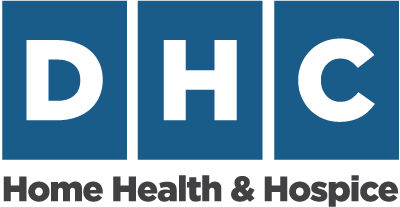Reduce your risk of heart disease
Your heart is the powerhouse of your body. It pumps blood, carrying nutrients and hormones, throughout the body. Heart disease is the number one killer of men and women in the United States. An unhealthy heart suffers from narrowed arteries that limit the blood flow and transportation of oxygen and nutrients. This is most commonly caused by the build-up of cholesterol-rich fatty deposits and plaques within the walls of the arteries. Another cause of arterial constriction is arterial spasms in which the arteries close suddenly and dangerously, often caused by smoking, extreme stress and exposure to cold temperatures. For a long, high-quality life, follow the following tips to reduce your risk of heart disease.
Quit smoking
Tobacco is responsible for more than 50 percent of heart attacks in middle-aged women. Cigarette smoking is the most preventable cause for heart disease. If you smoke cigarettes, do your heart a favor and quit. If you need help quitting, speak to your doctor about your options or find a support group in your area for smoking cessation. Once you quit smoking, your risk of cardiovascular disease begins to decline within months. Within 3-5 months, your heart could be as strong as that of a person who has never smoked.
Improve cholesterol levels
High blood cholesterol greatly increases your risk of coronary heart disease. Bad cholesterol in your body settles on the inner walls of the arteries, narrowing the space for blood to flow throughout the body. A healthy level of total cholesterol is below 200 mg/dL. There are two types of cholesterol: LDL, the bad cholesterol, and HDL, the good cholesterol. Ideally, your LDL cholesterol levels should be below 130 mg/dL and your HDL cholesterol levels should be above 35 mg/dL. Get your cholesterol into the ideal range and you will be one step closer to a healthier heart.
Be active
The number one reason people give for not exercising is a lack of time. However, by not exercising, you are putting yourself at greater risk for cardiovascular illness. If you can make time for 30 minutes a few times per week of moderate-intensity activity such as brisk walking, you can substantially decrease and reduce your risk of heart disease. By maintaining a healthy exercise routine, you can also reduce your risk of insulin resistance which is a precursor to diabetes. Physical activity will strengthen your heart and increase the likelihood of surviving a heart attack should one occur.
Eat a healthy diet
A healthy diet should be free of saturated fats and trans fats. Increase your consumption of fruits, vegetables, whole grains and fiber to reduce your risk of plaque buildup in the arteries. Eating green leafy vegetables and fruits high in vitamin C has a protective effect against coronary heart disease. Adopting a vegetarian diet can not only prevent artery disease, but also reverse existing coronary artery disease. Replacing the use of butter and artificial cooking sprays with olive oil can also do much to aid your heart health. Adding a multivitamin to your daily regimen will also fill in the gaps in nutrients that you are not getting from your diet. A healthy diet will keep your body sufficiently fueled for all your daily needs and will also reduce your risk of high blood pressure.
Maintain a healthy weight
As the job market evolves and technology makes our lives more convenient, the sedentary lifestyle is becoming more popular, leading to an increase in obesity. Obesity and a less active lifestyle lead to an increased risk of cardiovascular disease. About 60% of men and women do not regularly exercise. By increasing your activity level, getting the proper nutrients, and maintaining a healthy weight, you will significantly reduce your risk of heart disease.
Manage stress and anger
Anger and stress put a lot of strain on your heart. High levels of stress can increase blood lipids (fatty particles in the blood stream). Being prone to anger is highly correlated to cardiac incidents and the rapid progression of carotid artery disease. Learn healthy coping mechanisms such as breathing techniques, meditation, yoga and maintaining a strong social support system.
Control diabetes and other illnesses
If your doctor has diagnosed you with a chronic illness such as diabetes or cancer, take care to follow your physician’s medicinal regimen. If you are having trouble keeping up with medications and testing, talk with your doctor about how you can more easily incorporate these necessary interventions into your life.
We all want to live a long, happy, prosperous life. Make sure your heart is healthy enough to carry you to your full potential. Take measures to reduce your risk of heart disease to strengthen your heart and reverse any damage that may have already been caused.
Image credit for Heart Health Month: Reduce Your Risk of Heart Disease: Thai Jasmine

